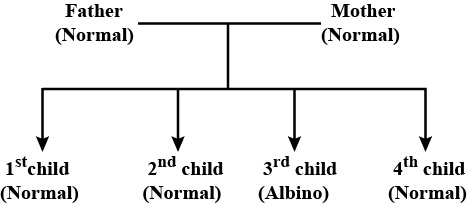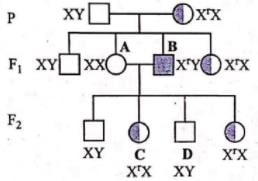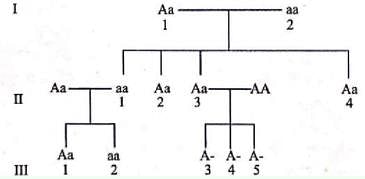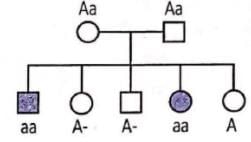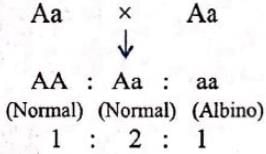Test: Pedigree Analysis (NCERT) - NEET MCQ
10 Questions MCQ Test - Test: Pedigree Analysis (NCERT)
Inheritance of which of the following traits is shown in the given cross?
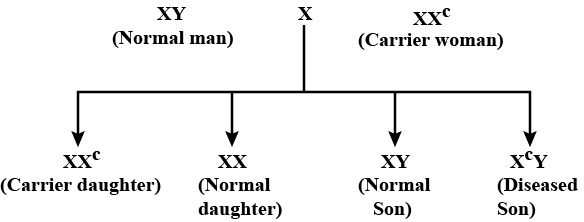

How are Mendelian disorders transmitted to offspring?
| 1 Crore+ students have signed up on EduRev. Have you? Download the App |
Study the given pedigree chart showing the inheritance of an X-linked trait controlled by gene 'r'
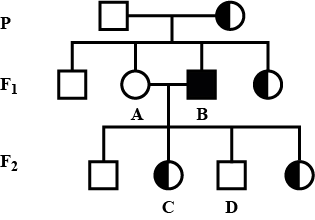
What will be the genotypes of individuals A, B, C and D respectively?

Select the incorrect statement regarding pedigree analysis
Assertion (A): All daughters of a man affected by hemophilia will be carriers of the disease.
Reason (R): Hemophilia is a sex-linked recessive disorder carried on the X chromosome.
Fused ear lobes appear in the progeny due to an autosomal recessive gene. Work out the genotypes of members in the given pedigree.
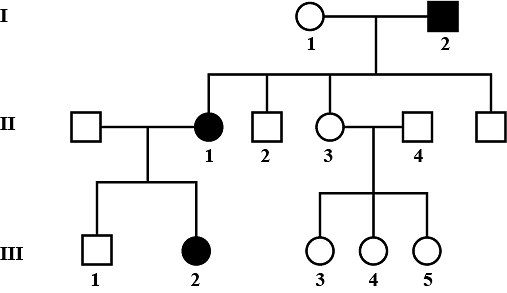

In the following pedigree chart, the mutant trait is shaded black. The gene responsible for the trait is
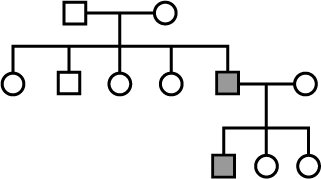
Given pedigree chart depicts the inheritance of attached ear lobes, an autosomal recessive trait.
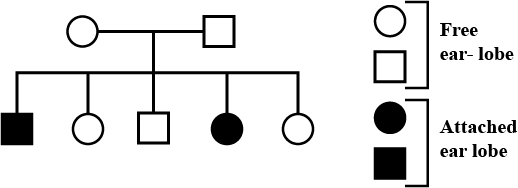
Which of the following conclusions drawn is correct?
Study the pedigree chart of a family showing the inheritance of myotonic dsytrophy
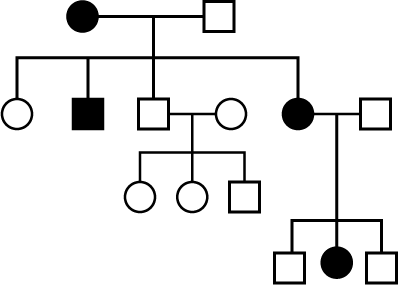
The trait under study is
If A = normal allele, a = albino allele, then genotypes of father and mother respectively are?
